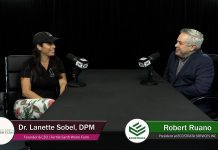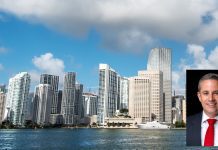|
Getting your Trinity Audio player ready...
|
By Al Rose, Miami-Dade County Resident, Opinion
As Miami-Dade County quietly considers extending the lease of 72 acres of Chapman Field Park to the private Deering Bay Yacht and Country Club, a stark truth must be confronted: public land has been privatized, and the public is being locked out.
This prime waterfront property designated as County park land has been used exclusively by a members-only golf facility since 1958. While a 2013 settlement agreement (Resolution No. R-1050-13) extended the lease to 2030, it is time for the County to end this exclusion and restore public access to what is legally and morally public land.
The Law Is Clear: County Park Land Is for the Public
Under Miami-Dade County Code § 25B, all public park property must be “used exclusively for outdoor recreational or park purposes.” The law expressly prohibits any use that “would impair its use and enjoyment as a park by the public” (Municode § 25B).
Yet today, the Deering Bay Golf Course sits fenced off and inaccessible to the residents who fund and legally own the land. That must change.
The Original Intent: Public Golf and Marina Access
In 1958, Miami-Dade County leased 48 acres of Chapman Field Park to Kings Bay Corporation for a 20-year term with a singular purpose: to create a public-serving golf course. As a condition of the lease, Kings Bay provided capital improvements in lieu of rent by dredging and filling portions of the park to accommodate a future public marina.
This was never intended to be a private playground for the elite, it was envisioned as a public marina and public golf course serving the broader community. That foundational public intent has been eroded over time through closed-door dealings and quiet lease extensions.
Ownership and Lease History: 72 Acres of the Public Chapman Field Park
 Miami-Dade County owns a 72-acre portion of the land currently used by the Deering Bay Yacht and Country Club as part of its private 18-hole golf course. This land sits within the larger 566-acre Chapman Field Park, a historically significant and environmentally rich parcel of parkland owned by the public. Deering Bay leases this 72-acre area directly from the County, a lease formalized through a 2013 settlement agreement designed to resolve long-standing disputes over rent and use. The agreement extended the lease through 2030.
Miami-Dade County owns a 72-acre portion of the land currently used by the Deering Bay Yacht and Country Club as part of its private 18-hole golf course. This land sits within the larger 566-acre Chapman Field Park, a historically significant and environmentally rich parcel of parkland owned by the public. Deering Bay leases this 72-acre area directly from the County, a lease formalized through a 2013 settlement agreement designed to resolve long-standing disputes over rent and use. The agreement extended the lease through 2030.
But now, without public engagement or transparency, County officials and Deering Bay representatives are reportedly engaged in ongoing discussions to extend this lease even further, potentially locking out future generations from public access.
Land Use and Financial Inequity: Time for a Public Return on Public Land
Without the 72 acres of County-owned parkland, the Deering Bay Golf Course could not operate in its current form. The public land is essential to its layout and function—yet the public receives no direct benefit.
In contrast, adjacent parcels of Chapman Field remain under full County control and could support the development of a world-class public golf and recreation facility. The financial disparity is indefensible:
- Deering Bay pays just $150,000 annually in rent.
- The club retains 100% of membership fees, event income, and operational profits.
- Palmetto Golf Course, a public course, generates over $2 million per year.
- The County’s full public golf portfolio earns more than $11.5 million annually.
Public operation of the Deering Bay site could increase gross receipts by 10 to 15 times, reinvesting millions into parks, youth programs, and public amenities.
Miami-Dade Is Underserving Its Residents
With a population of 2.7 million, Miami-Dade County operates only a limited number of full-size public golf courses:
- Crandon Golf at Key Biscayne (18 holes)
- Palmetto Golf Course (18 holes)
- Country Club of Miami (East and West courses, 36 holes total)
- Greynolds Golf Course (9 holes)
- Briar Bay Golf Course (9 holes)
In contrast:
- Broward County (pop. ~1.95M) offers 6+ full-size public courses
- Palm Beach County (pop. ~1.5M) offers 15+ public golf facilities
We are falling behind on access, equity, and planning for future generations.
Public Demand Is Growing
Tee-times at Miami-Dade’s existing courses are scarce. Many residents along with the youth athletes are frequently shut out due to overbooking. A reclaimed Chapman Field public course would not only meet demand, but it would also be a civic investment in health, recreation, and fairness.
Local Schools Are Shut Out
Chapman Field sits within 10 miles of dozens of public K–12 schools that could use a local public course for instruction, team practices, and clinics.
High Schools: Palmetto, Coral Reef, Killian, Southridge, Varela, Coral Gables, Mast Academy, BioTECH@Richmond Heights
Middle Schools: Arvida, Hammocks, Southwood, Richmond Heights, Jorge Mas Canosa
Elementary Schools: Coral Reef, Whispering Pines, Pinecrest, Ludlam, Jack D. Gordon, and more
Access to this land could transform youth sports and equitable recreation in southern Miami-Dade.
Legal Precedent: Crandon Park
In Friends of the Everglades, et al. v. Miami-Dade County (2016), the courts blocked an attempt to transfer the Crandon Park Tennis Center to private control. The court found that Crandon Park was protected by deed restrictions requiring public access, transparency, and civic purpose.
This ruling reinforces a simple truth: parkland is not a commodity. Public land must serve the public, not a private few.
What Residents Can Do
With the current lease set to expire in 2030, we must act now:
- Reject any lease renewal that excludes the public
- Enforce Miami-Dade County Code § 25B to ensure civic access to parkland
- Reclaim Chapman Field for a public golf course and marina, as originally intended in 1958
- Ensure affordability by setting green fees below private market rates
Chapman Field Belongs to the People
 Miami-Dade’s elected officials must not continue to lease away the public’s future through silence and secrecy. The residents of this county deserve a return on the public land, not just in revenue, but in access, inclusion, and opportunity.
Miami-Dade’s elected officials must not continue to lease away the public’s future through silence and secrecy. The residents of this county deserve a return on the public land, not just in revenue, but in access, inclusion, and opportunity.
Chapman Field Park is public land. Let’s bring it back to the people.






